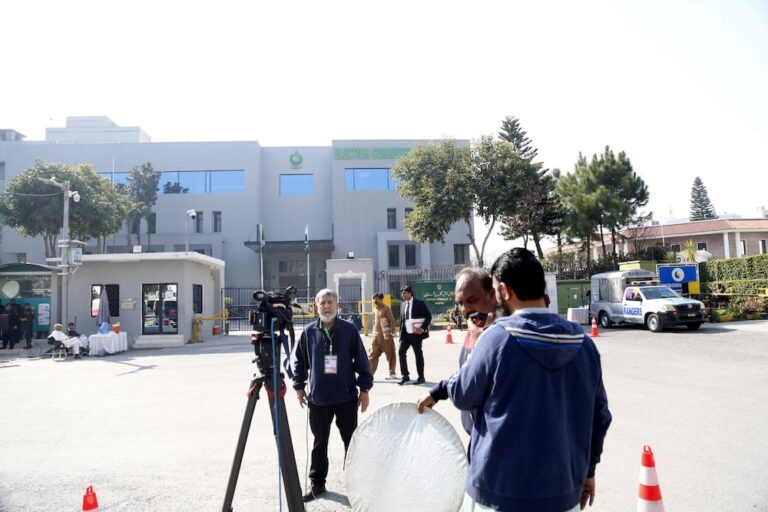Technology based violence is exposing women to the entire spectrum of conceivable harms in Pakistan, says a Bytes for All research report. The report also highlights the negative impact created by the lack of a cybercrime law.
This article was originally published on content.bytesforall.pk on September 29, 2014.
Technology based violence is exposing women to the entire spectrum of conceivable harms in Pakistan. Victims of technology-based violence have suffered physical violence ranging from rape to attempted assassination, psycho-social harms and loss of development opportunities. This was revealed in a research report launched by Bytes for All, Pakistan in Islamabad.
The report titled “Technology Driven Violence against Women” consolidates findings from three case studies featuring women who have survived violence and abuse originating from misuse of technology. These case studies identify the gaps in remedial options available to women who are victimised by digital technologies. The report highlights that, incidents of violence against women online are carried on with full impunity and often result in a spillage of violence in the offline sphere. The report talks of the specific context in Pakistan, where charges of blasphemy, of being an Indian or American agent or other such labels are usually evoked to target victims of hate speech.
The report also highlights the negative impact created by the lack of a cybercrime law in Pakistan. Gul Bukhari, Manager Gender Program, Bytes for All, main researcher for the report, stressed the need for a national cybercrime law, indicating that without this law Pakistan cannot ratify the Budapest Convention that currently serves as the global governance system of internet related matters. Bukhari said that, “technology has become the most lethal, easy to use weapon in the hands of those who decide to attack and harm women. Technology driven violence against women is becoming rampant world over, including in Pakistan. It is not just mirroring an existing phenomenon, but further enabling, enhancing and increasing it.”
The report launch was followed by a panel discussion that aimed to engage various key stakeholders in the discussion. Senator Afrasyab Khattak, Nabiha Mahmood, Director, Department of Consumer Protection, PTA, Hassan Mangi, DG International Commitments, Ministry of Law, Justice and Human Rights, Journalist and anchor Maria Memon, Naeem Mirza, Chief Operating Officer Aurat Foundation and Lawyer, criminology consultant Humaira Masihudin were a part of the panel.
Senator Afrasyab Khattak, Chairperson Standing Committee on Human Rights expressed his concern and spoke of the importance of reviewing current legislation in the context of technology based violence. He committed the support of his committee in facilitating legislation and legislative reforms in this regard. Hassan Mangi, DG International Commitments, Ministry of Law, Justice and Human Rights, lent his support to the cause of addressing technology driven violenve and to framing of adequate legislation.
Nabiha Mehmood, Director Department of Consumer Protection, PTA, highlighted the issue of jurisdiction with regards to regulating internet. She said that PTA does not have the mandate to regulate content online and while they have taken numerous measures to help consumers being harassed via mobile and telephones, they cannot do the same for online violations. Maria Memon, anchorperson with Geo TV said there is a difference in Twitter Accountability that men and women are subjected to and highlighted the need for increasing knowledge about digital security to ensure that women are not increasingly vulnerable to digital crime.
Advocate Humaira Masihudin, expressed her concern that new laws dealing with women harassment actually shortens the term of imprisonment. She also talked of the need for implementing structures to actualize the pro women laws that already exist. Naeem Mirza, COO Aurat Foundation, lent the support of Aurat Foundation to the issue, and termed technology-based violence women as a ‘real and emerging’ issue.
Bytes for All, an NGO focusing on digital rights in Pakistan, has been involved in an extensive campaign on Gender & IT issues. The report was launched during Take Back The Tech campaign, a global initiatives to raise awareness about the dangers women face in the digital sphere. The research has been supported by Association for Progressive Communications, APC and is a part of a global effort to map technology based violence against women.


